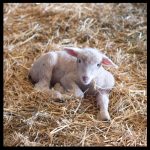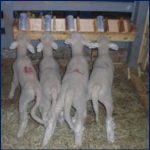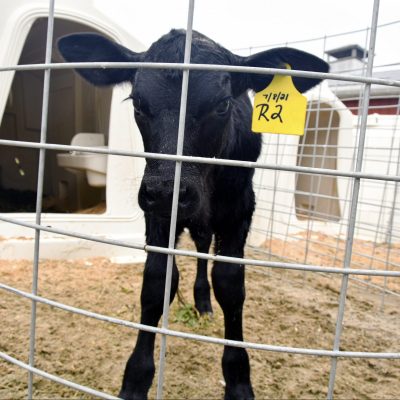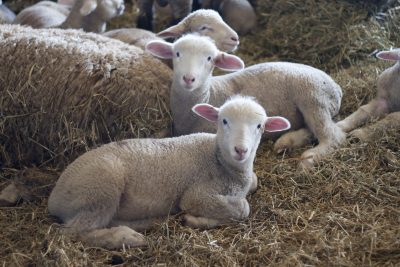Based in the Department of Animal Science at the University of Connecticut, the objective of our research is to determine how poor maternal diet (both over- and restricted-feeding) alters fetal and post-natal offspring growth and development. Our research team includes the labs of Dr. Kristen Govoni, Dr. Sarah Reed, and Dr. Steven Zinn.
Ongoing Projects

Multi-generational effects of poor maternal nutrition
Poor maternal nutrition during gestation decreases metabolism, increases oxidative stress, and increases pro-inflammatory mediators, which can decrease offspring growth and feed efficiency. Offspring sex also mediates the type and magnitude of response to poor maternal nutrition during gestation. However, the relative importance of each mediator to reduced growth rate due to poor maternal nutrition is not well understood, and the mechanisms by which these changes are transmitted to future generations remains ill-defined. The central hypothesis for this USDA-NIFA funded project is that poor maternal nutrition during gestation causes multi-generational negative effects to offspring oxidative status, inflammation, and metabolism that are correlated with changes in F1 and F2 offspring growth, feed efficiency, and sex. This project is currently funded by USDA-NIFA.

Role of maternal nutrient restriction and betaine supplementation in offspring growth and epigenetic regulation in the liver
Maternal supplementation with betaine during periods of feed restriction may be a mechanism to ameliorate the negative effects of restricted nutrition during gestation. The objectives of this project are to determine the effects of betaine supplementation in nutrient restricted pregnant ewes on the growth, development, and metabolism of muscle and liver. This project will further identify changes in gene expression and epigenetic markers as a result of maternal nutrient restriction and betaine supplementation. This project is currently funded by USDA-NIFA.

Nutritional management strategies for improving growth and carcass composition of beef x dairy crossbred calves
As sexed semen from proven dairy bulls is becoming more widely used, fewer cattle need to be bred to dairy bulls to produce adequate numbers of high genetic merit replacement heifers. Replacement rates of 20 to 40%, plus a safety margin, leave 40 to 70% of cattle available for crossbreeding with beef semen to produce beef x dairy (BxD) crossbred calves, while maintaining milk production in a herd. These calves have greater potential for growth and result in heavier carcasses with improved carcass characteristics compared with straightbred dairy calves, resulting in increased economic return to the producer. However, there is little information on appropriate nutritional management of BxD calves. The objective of this project is to determine how postnatal nutrition for BxD calves impacts growth, carcass quality, and economic return. This project is currently funded by NE-SARE.
